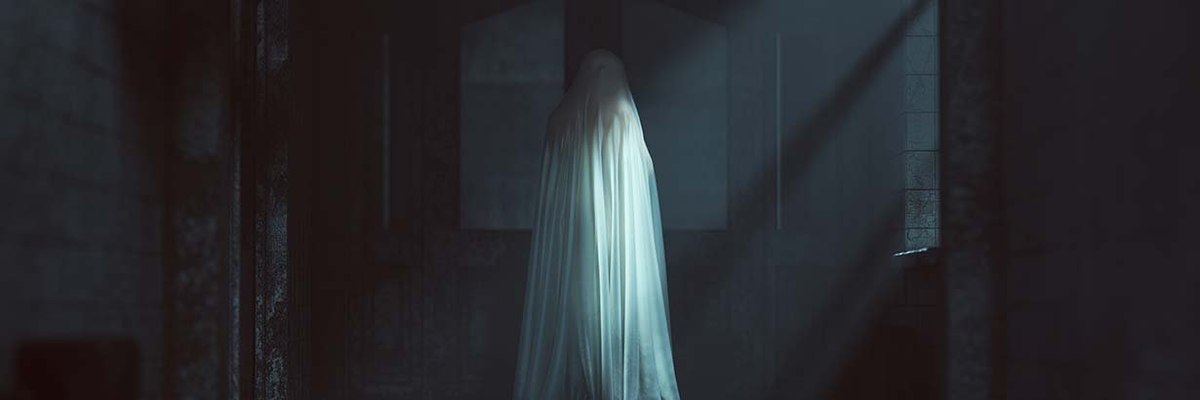38% of Britons believe that ghosts could exist, while 20% are open to the idea you can communicate with the dead
Supernatural phenomenon are present in cultures from every corner of the globe, with recurring folklore of creatures and abilities that exist beyond the established rules of nature. But while the scientific consensus today might pour cold water on the plausibility of entities like ghosts, are all Britons quite so quick to rule out the supernatural?
Nearly four in ten Britons (38%) believe that ghosts could exist, comprised of 12% who are definitely sure that ghosts haunt this world and 26% who think they probably do.
This compares to most Britons (56%) believing that ghosts probably do not exist, even if just a third of the public (32%) are convinced that they definitely don’t.
Britons are less likely to believe in the other supernatural beings polled, though one in five (21%) believe that witches may exist, while one in eight (12%) are open to the possibility of the Loch Ness Monster existing, including 16% of Scots. Around one in twelve Britons (8% in each case) believe that either vampires or werewolves may be real.
There is a strong degree of overlap in some of these beliefs: for instance, 61% of those who believe that vampires could exist also believe that werewolves might. Overall, though, just 3% of the public believe that all five of the creatures polled at least probably exist.
Which supernatural practices do Britons believe are real?
Beyond the realm of fantastical creatures, the supernatural also extends to practices that can be performed or influence humans.
One such practice is hypnotism. While it remains controversial within the scientific community as to whether people can genuinely be hypnotised, six in ten Britons (60%) believe that hypnosis at least probably works, compared to just a quarter of the public (27%) who think you cannot actually mesmerise somebody else.
No other practice is believed to be at least probably real by a majority of Britons, but 38% of the public believe that there could be some truth to karma or cosmic justice, while 30% see both telepathy and reiki as plausible.
Astrology is seen as at least probably real by 23% of Britons, while one in five of the public (20%) believe you may be able to really communicate with the dead, with a similar number (19%) of the view that magic might be real. Furthermore, one in six Britons (17%) believe there could be some truth to crystal healing.
Overall, 4% of Britons say they believe that all eight practices polled are at least probably real.
Women are more likely to believe in the supernatural than men
Across the supernatural beings and practices polled, women tend to be more likely than men to believe there is at least some truth behind them.
Karma or cosmic justice is one case where this can be particularly seen, with nearly half of women (48%) believing it could be real, compared to just 28% of men. Additionally, women are roughly twice as likely than men to see some plausibility in reiki (39% vs 20%), astrology (31% vs 14%), telepathy (38% vs 22%) and being able to communicate with the dead (28% vs 13%).
While women are split 44% to 47% over whether or not ghosts may exist, 64% of men say that ghosts likely do not exist, more than twice the 30% who believe that they could. And for the 24% of women who believe there is some truth in crystal healing, just 10% of men feel similarly.
In some instances, the gap is smaller. There is a relatively low six-point difference between men (57%) and women (63%) in belief that hypnosis could be a genuine practice, while near-identically small proportions of both believe that vampires (8-9%) and werewolves (7-8%) could be real.
See the full results here and here
Do you believe in ghosts, witches or astrology? What do you think about the supernatural in general, and everything else? Have your say, join the YouGov panel, and get paid to share your thoughts. Sign up here.
Photo: Getty

















